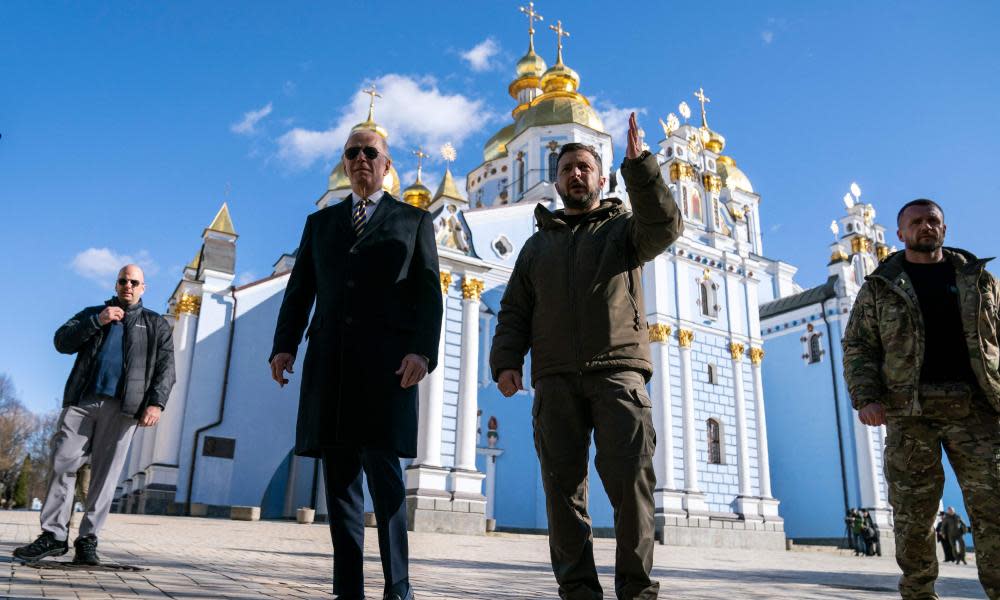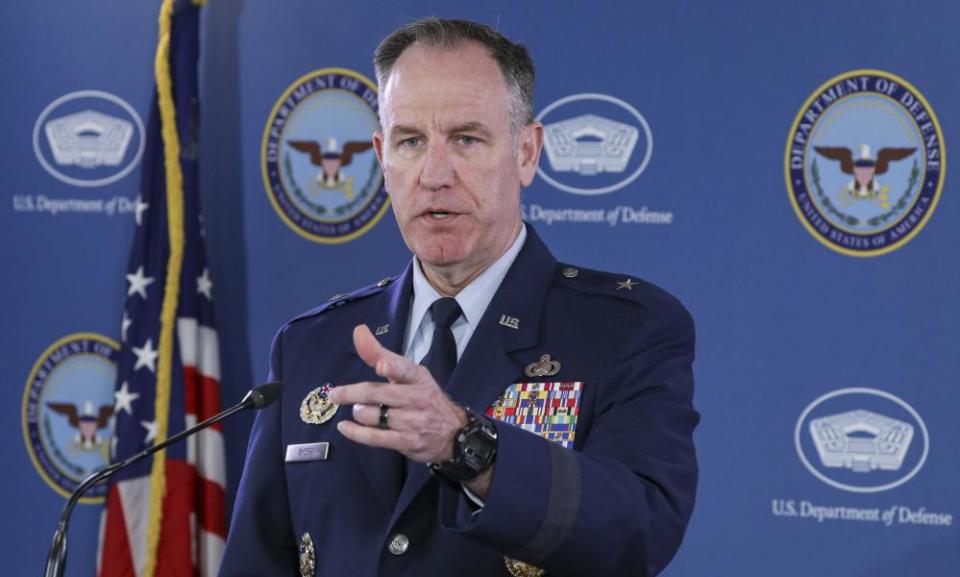The Pentagon leaks reveal the rot at the heart of US intelligence – but they haven’t hurt Ukraine

So far this century, there have been three major public “compromises” of US intelligence material. The first – the WikiLeaks series initiated by Chelsea Manning – revealed the mayhem at the heart of the Iraq and Afghanistan wars. Edward Snowden’s vast cache uncovered the US state’s campaign of unlawful surveillance against its own people. Over the past week, we have seen yet another collection of secret documents ruffle the feathers of US intelligence.
Of the three sets of leaks, the most recent is, in itself, the least politically damaging. But what they demonstrate again is the dangerous self-created and continuing rot at the heart of the US intelligence system: the combination of over-classification and the widespread availability of access to secret material.
Given the nature of the documents available so far, most of which seem to be daily updates and analysis, there seems to be little operationally damaging intelligence. Most significant perhaps is the “revelation” that US intelligence was spying on allies such as South Korea and Israel. Any government leader with significant links to the US who believes their ally is not keeping a close eye on them needs to fire their counterintelligence advisers. It therefore should have come as no surprise to President Zelenskiy that he was also on the receiving end of US surveillance. As for the UK, no one should have been shocked by the news that the only UK troops not subject to any form of effective democratic oversight – special forces – are deployed in Ukraine in considerable numbers.
It is unlikely that these people (and their counterparts from elsewhere in Europe and the US) are directly involved in combat; rather, they are training Ukrainian soldiers and assisting in planning operations. While it would be difficult for Russia to argue that their presence denoted direct involvement, should the opportunity present itself it could suit Russia to do so, nonetheless. Also of some significance are the concerns expressed in the leaks that Ukraine may “fall short” in its long-awaited spring offensive. While much has been made of this, General Mark Milley, the chairman of the US chiefs of staff, has recently made similar views clear in public.
More importantly, the leak represents another own goal by an intelligence bureaucracy with a pathologically confused attitude to information management. A rational approach to access to secret information is based around classification according to reasonably clear definitions of various levels of secrecy; distinguishing and defining “confidential”, “secret” or “top secret”, for instance.
So far so good; the US does this well. This should be accompanied by a “need to know” approach. In other words, “Does a person or institution with access really need to know this to function effectively?” One might be given to wonder why a junior reservist airman in Cape Cod, Massachusetts – if indeed he was the source of the Discord leaks – should “need to know” about Ukrainian plans to strike Russia, or the political machinations of the Israeli intelligence services.

The answer, of course, is that he doesn’t – but has access anyway. The reason for this lies in two countervailing but powerful impulses that, taken together, are fatal to secrecy. On the one hand, US military and intelligence personnel have a serious, almost paranoid, habit of over-classification – treating anodyne military information in much the same way as genuinely sensitive material. As Bill Burns, the director of the CIA, put it last Tuesday: “There is a serious problem of over-classification.”
The situation is compounded by a system that then sprays that classified information to huge numbers of people with security clearances. An astonishing 1.2 million US government employees have access to top-secret information. A further 1.6 million can read material that is merely “secret”. The real surprise is how apparently few huge leaks have occurred.
Apparently. The worry for the US, and by extension western intelligence organisations, is that there is a real possibility that they have occurred. The kind of leaks we have seen from Manning, Snowden or in the Discord files are politically embarrassing, but are they really damaging? Breathless claims by officials and politicians that “lives are at risk” are likely to be specious or “significantly overwrought”, as with previous publicly acknowledged leaks.
Related: Pentagon leak suggests Russia honing disinformation drive – report
Indeed, a case can be made that the Discord leaks are rather more damaging to Russia than to any western power. Consider the extent of information revealed about Russia’s internal confusion, with the security services arguing with the defence ministry over proper death counts, for instance.
The motivations for Manning, Snowden and the person behind the latest leaks may differ. They have in common that all were content for their material to be publicised. Literally everyone knows what has been released. Really serious leaks are not publicised, by anyone. They are kept very, very secret. These may well have happened, we just don’t know about it.
While Russia’s intelligence agencies have given every recent appearance of being inspired more by Inspector Clouseau than The Americans, they have a long history of highly effective work. And the capabilities of China’s ministry of state security and relatively new strategic support force dwarf those of Russia. Rather than fulminating about the latest embarrassment and casting about for people to blame, the US intelligence “community” needs to get busy sorting out the systemic vulnerabilities it has created for itself. It can be sure that Russia, China and others are working very hard to exploit them.
Frank Ledwidge is a barrister and former military officer

 Yahoo News
Yahoo News 
